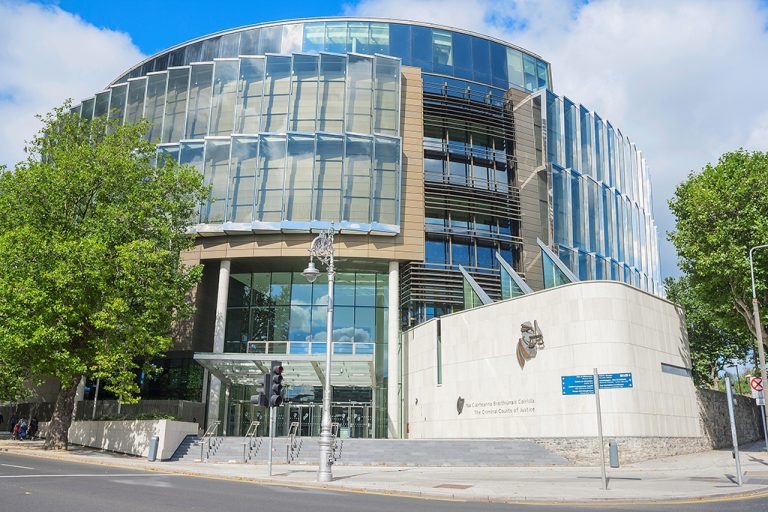Diabetic driver acquitted of dangerous driving causing fatal M50 car accident
Padraig Conlon 24 Nov 2023
By Sonya McClean and Eimear Dodd
A diabetic man accused of causing a fatal car accident on the M50 four years ago has been acquitted following a trial at Dublin Circuit Criminal Court.
Gerry Daly (57) Derby Lodge, Brownstown, The Curragh, Kildare, had pleaded not guilty to dangerous driving causing the death of Jacqueline Griffin (39) at junction five of the M50 on January 24, 2019.
The court heard that Ms Griffin died of catastrophic head injuries after her car was forced into crash barriers.
She was killed instantly.
After deliberating for six hours and 50 minutes, the jury returned a not guilty verdict today.
Judge Elma Sheahan thanked the jury for the diligence they had shown throughout the trial.
She said this was a “difficult case” particularly for Ms Griffin’s family, who had to listen to “harrowing evidence” during the trial.
She commended them for the dignity they had shown throughout the process and acknowledged their sadness.
There were cries of shock and upset in the courtroom as the verdict was read out.
Some jurors also appeared to be upset as they were ushered from the room by the jury minder.
Members of Ms Griffin’s family appeared to be distressed and some were crying.
Opening the case, Garnet Orange SC, prosecuting, said it was the State’s case that Mr Daly’s driving along this stretch of the M50 involved driving at speed and weaving in and out of traffic.
He said Mr Daly was driving on the left-hand lane heading north towards Ashbourne when “at the very last moment he veered across, very narrowly avoiding a collision with a truck”.
“He got in front of the truck and collided with the car being driven by Ms Griffin, causing an enormous forceful collision,” Mr Orange said.
He described it as a “ferocious collision” which caused Ms Griffin’s vehicle to roll over very quickly.
“Ms Griffin sustained injuries that led to her instantaneous death at the point,” Mr Orange said.
Counsel said Ms Griffin was “doing nothing other than being compliant” with the rules of the road.
Counsel told the jury there will also be evidence that at the time of the accident, Mr Daly was a type one diabetic and experiencing a related medical condition that affected his ability to drive and he was “not in a position to exercise control over the vehicle”.
Mr Orange read from the report of a doctor who arrived at the scene about two hours after the accident and saw that a vehicle was on its side on the road.
A post-mortem report was also read into the record during which it was noted that Ms Griffin had died of “catastrophic head injuries after her vehicle was struck from the rear by another vehicle travelling at speed”.
The jury was shown CCTV footage from various cameras on the M50 and footage recorded from cameras on a recycling truck that was on the M50 on the day.
A number of motorists gave evidence of what they noticed that day while they were driving along the M50.
Motorists described a dark-coloured car driving at speed, then glance off an articulated truck before it struck the back of the vehicle Ms Griffin was driving.
A taxi-driver told jurors that Ms Griffin’s car was forced it into a barrier, which caused it to flip before the speeding vehicle continued driving on.
Dr Kevin Moore, consultant endocrinologist told the jury that in his view Mr Daly didn’t make a “conscious decision” to get into the car and drive that day.
He said that he has been supervising Mr Daly for “over 10 years” and Mr Daly attended as a patient with type one diabetes.
Dr Moore was taken through a graph of Mr Daly’s blood sugar readings on the day of the accident.
He expressed the view that these were consistent with Mr Daly having gone into a lower level of glucose which can “impair cognitive function” and it was his view that Mr Daly was in a severe hypoglycaemic state.
He said the defendant would have been “confused” and “disorientated” which reflected a “severe cognitive impairment” because there was “not enough glucose” in the brain.
He said it is his opinion that Mr Daly’s judgement was impaired and he “didn’t make a conscious decision to get into the car and drive”.
When asked about Mr Daly’s driving, the crash and its aftermath, Dr Moore said: “It is my opinion that his brain was barely able to function at that point and had been struggling for the duration of the car journey.
“In reality, he was on the edge of going unconscious or having a seizure.”
He said Mr Daly would have been able to function on “autopilot” and able to carry out basic functions such as driving or walking “just about – badly, erratically and unsafely”.
Roderick O’Hanlon SC, defending, said in his closing speech that Mr Daly was not in a position to control the decision to drive at the time of the “appalling and tragic accident”.
Mr O’Hanlon said that Mr Daly’s brain function and cognitive ability was diminished due to his extremely low blood sugar levels at the time of the accident.
He said Mr Daly was driving in “an autonomous condition” and that “he was unaware where he was or exactly what had happened”.











